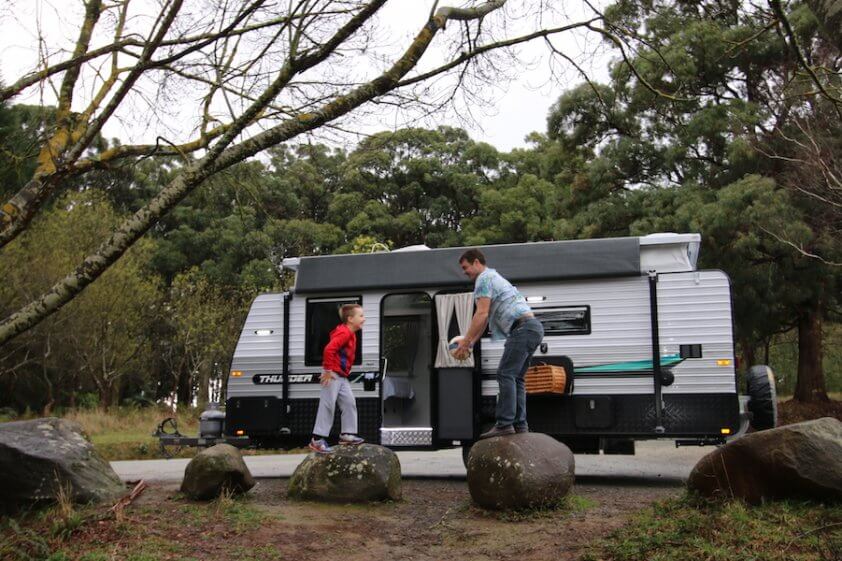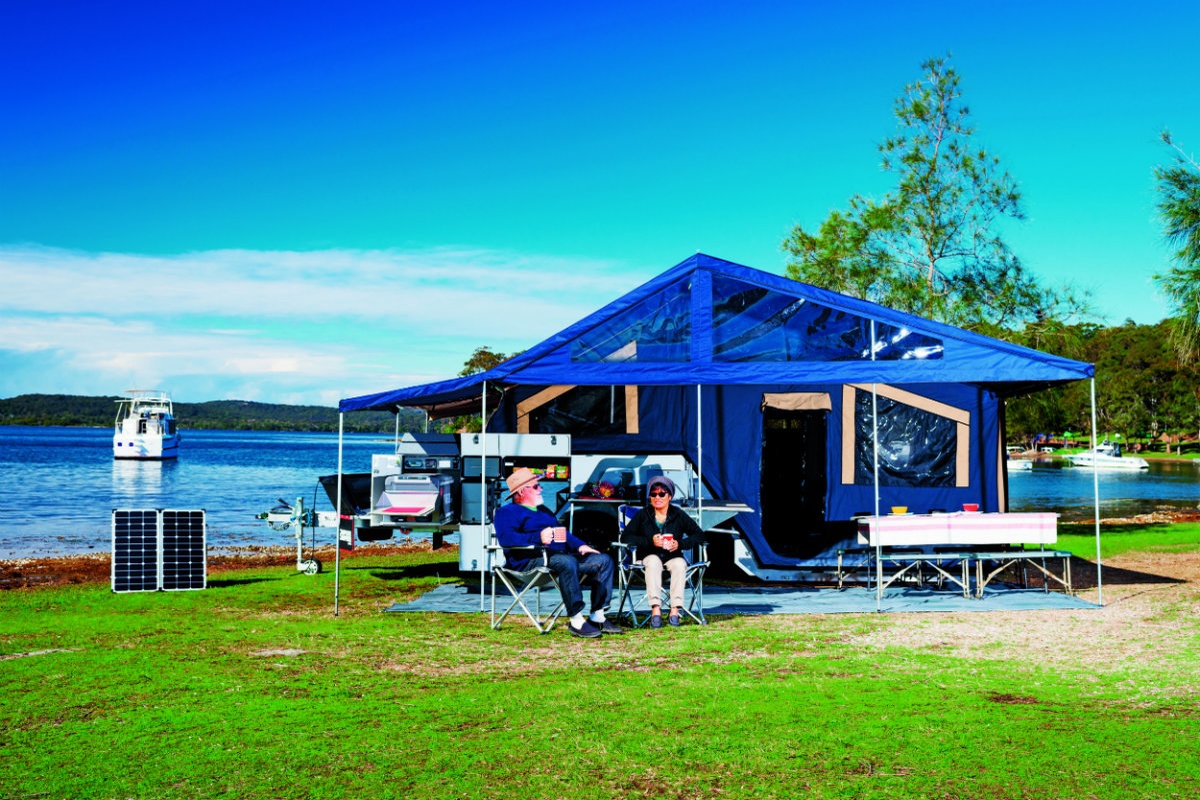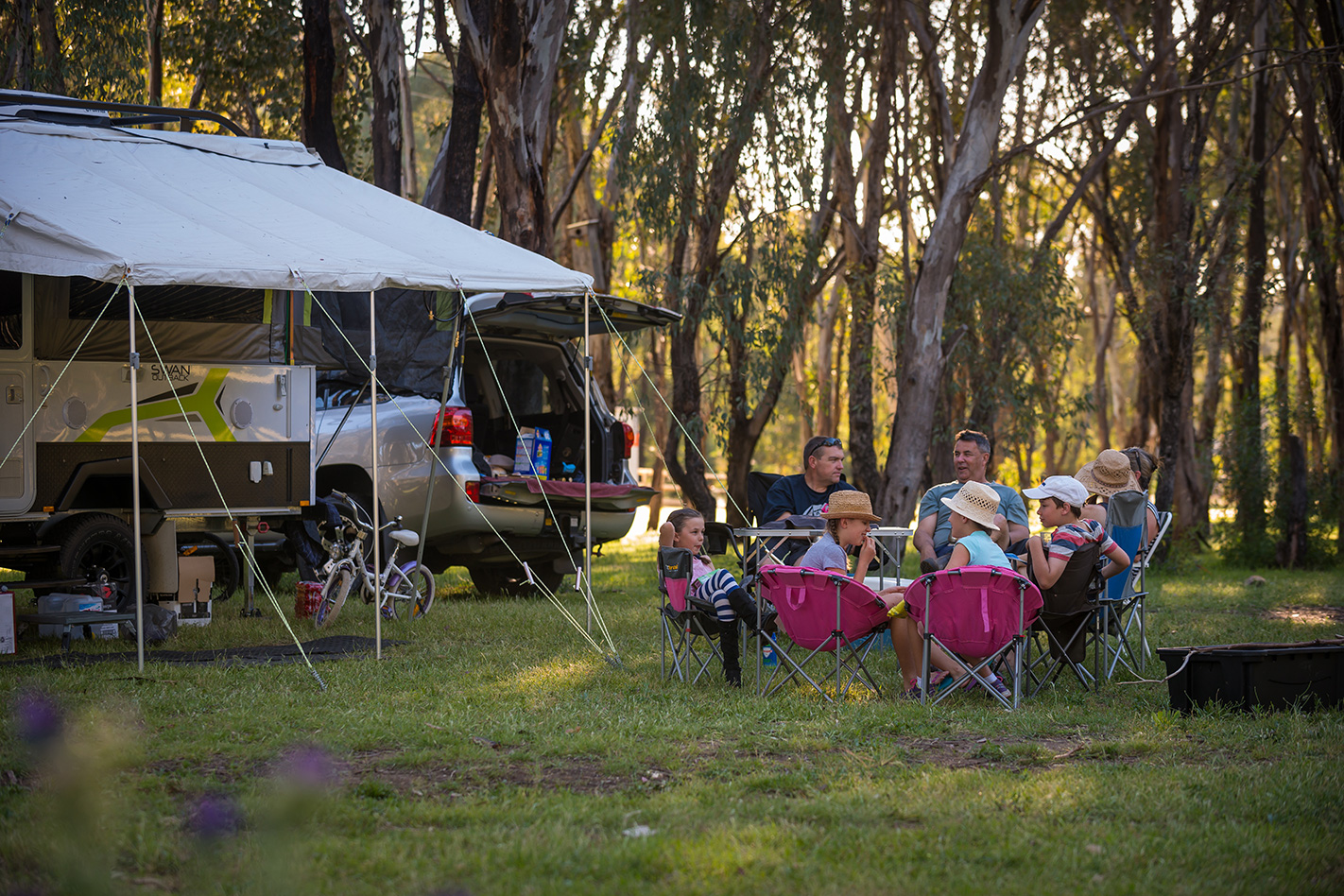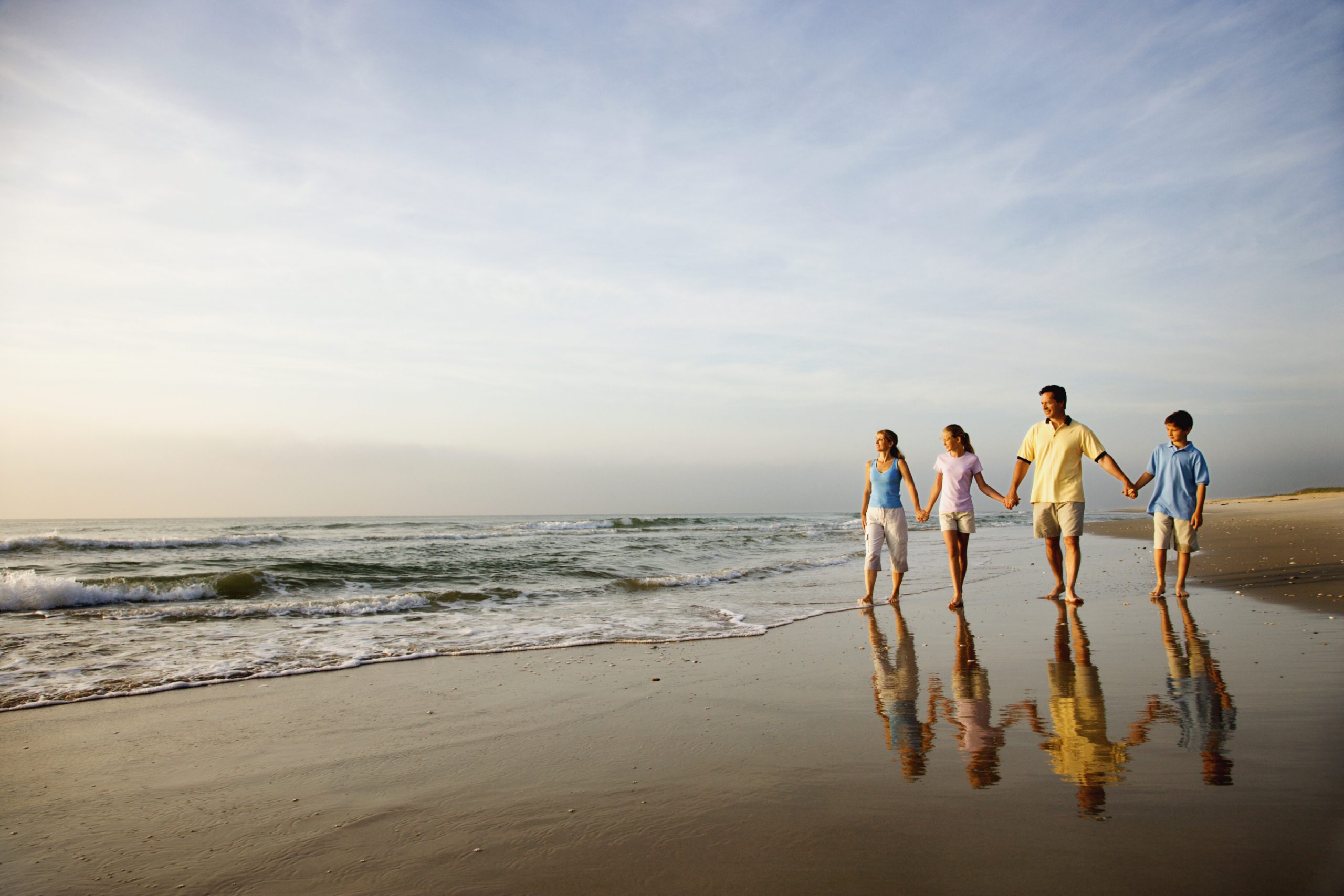I’m going to admit to something that some caravanners might find unusual: I prefer pop-tops over full caravans.
I believe that pop-tops offer many benefits in comparison to their fixed-roof cousins that make them the better choice.
This doesn’t mean, of course, that full caravans aren’t the better choice for you – as we often say at Without A Hitch, a lot depends on your personal circumstances and your travel preferences. However, by sharing my opinion on this topic, I hope to give you plenty to think about as you mull your next caravan.
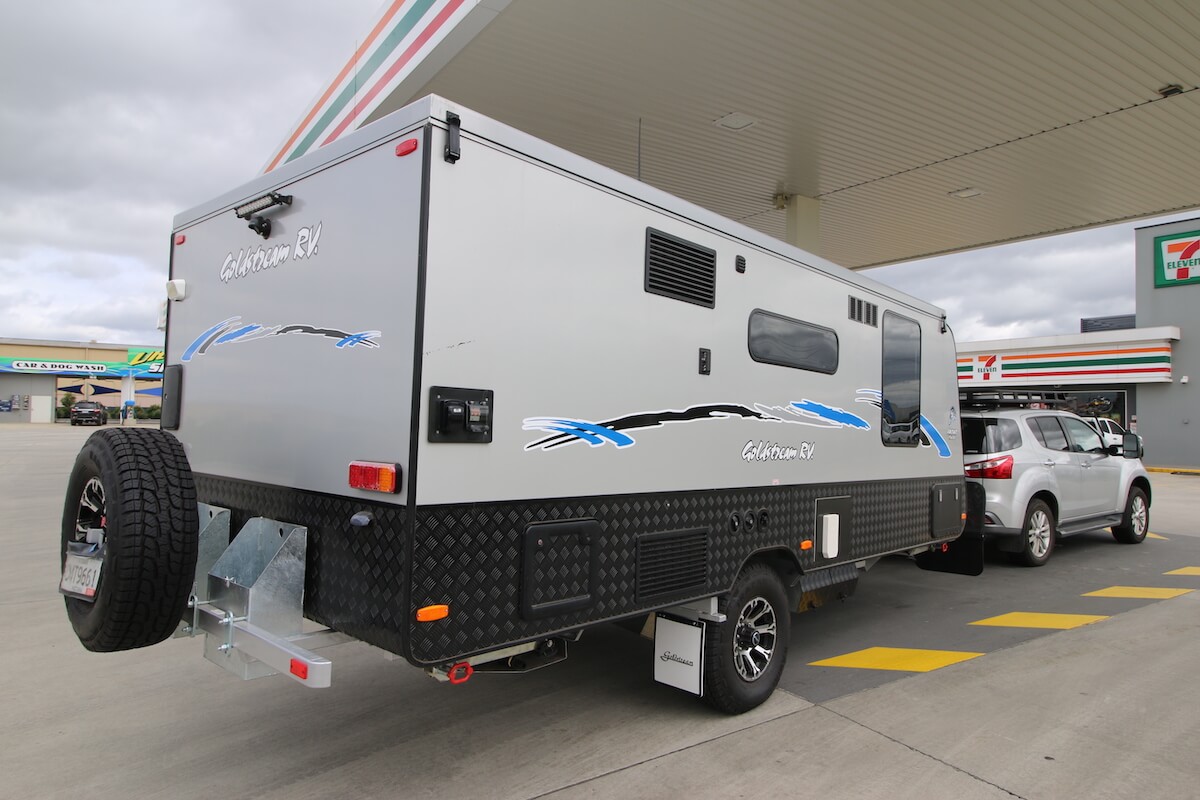
POP-TOPS ARE A GENUINE FUEL-SAVER
It’s true: pop-tops require less fuel to tow than a fixed-roof caravan. I know this because I tested it by hitching up two caravans that were virtually identical in all respects other than the configuration of the roof.
The Goldstream RV pop-top had a towing height that was 500mm lower than the Goldstream caravan. I eliminated weight as a variable for this fuel test by filling the water tanks of the lighter pop-top and adding some additional weight inside, making the weight of the pop-top virtually identical to that of the caravan.
I then towed both vans for 210km along the exact same route, measuring the fuel consumption and cost to refill the tank of the my tow vehicle after each trip. It came to this:
Pop-Top
Km/L: 6.85
L/100km: 14.6
Refill cost: $44.69
Caravan
Km/L: 6
L/100km: 16.7
Refill cost: $51.01
At a glance, it doesn’t seem like the pop-top offers massive fuel savings. However, it’s important to extrapolate those figures over the thousands of kilometres the van would travel in its lifetime. The savings add up!
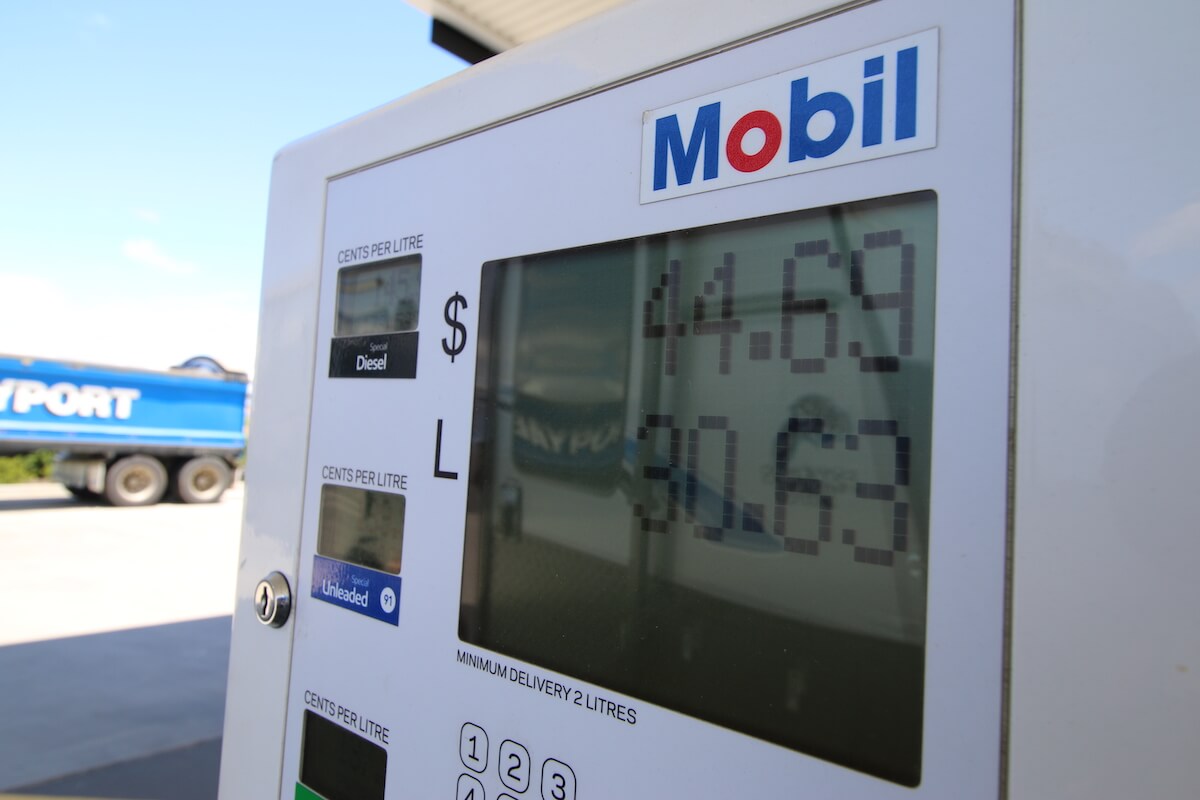
TOWING AND STORAGE
With their lower towing profile, as compared to a fixed-height equivalent caravan, pop-tops are a little easier and less stressful to tow. Since they are (generally) lighter, a pop-tops is likely to be less taxing on the tow vehicle, too.
The lower height becomes useful when negotiating tight tracks en route to free camps, etc. How many times have you been forced to find an alternative route due to an overhanging branch that would scratch and dent the van’s roof if you attempted to proceed? The answer for me is “too many” times. However, the extra 400-500mm of clearance provided by a pop-top has on more than one occasion made all the difference.
Thanks to their lower overall height (when the roof is closed), pop-tops are also easier to store. Of course, this will depend on your setup at home – perhaps you have a carport with a high roof, making this point irrelevant. For me, though, that lower height is particularly useful.
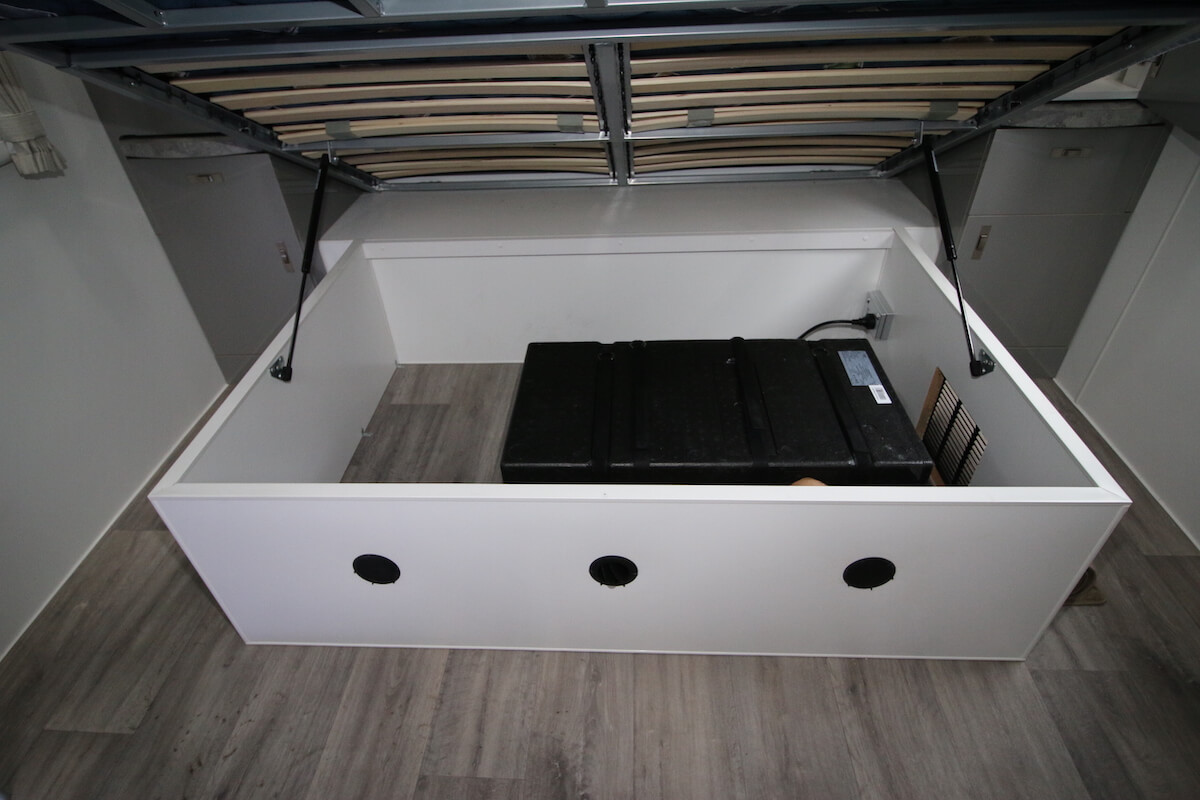
SETTING UP
There is absolutely something to be said for the ability to just unhitch and get inside the van after a long day’s drive, with no further setup being immediately required. I understand that. A typical pop-top, however, is not like a camper trailer or a tent trailer with a roof that needs to be cranked up.
All that’s required to set-up a typical pop-top is for someone to set the awning into the ‘open’ position, undo four over-centre catches – one in each corner of the van – and then step inside to lift the roof. At most, it’s a 60-second job. The benefits outlined above, in my opinion, easily outweigh this small negative.
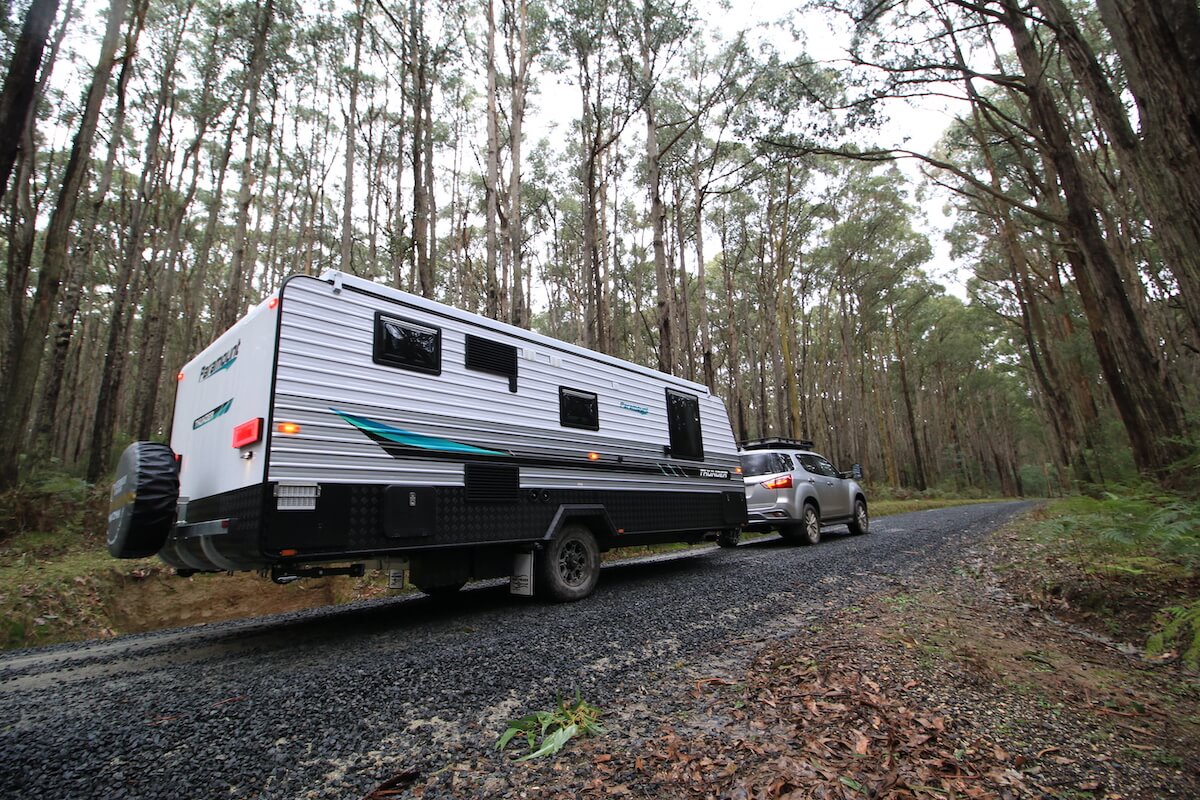
DRAWBACKS
There is one major drawback to pop-tops that understandably make them the poorer choice in the eyes of some vanners: lifting the roof.
Anyone with persistent back, neck or shoulder pain – or any physical issue concerning their mobility – is likely to have difficulty. Additionally, I have encountered many pop-tops that, for reasons unknown to me, have been fitted with a roof-mounted air-conditioner rather than a unit under the bed. The weight of that air-conditioner makes lifting the roof even more difficult.
But there is a way around this issue: air-bag ‘helpers’ are commercially available. These are fitted inside, between the roof and walls of the pop-top, and at the push of a button, they are inflated by a small onboard air-compressor to raise the roof for you.
It takes a little longer than if you were to lift the roof yourself, which is worth taking into consideration.
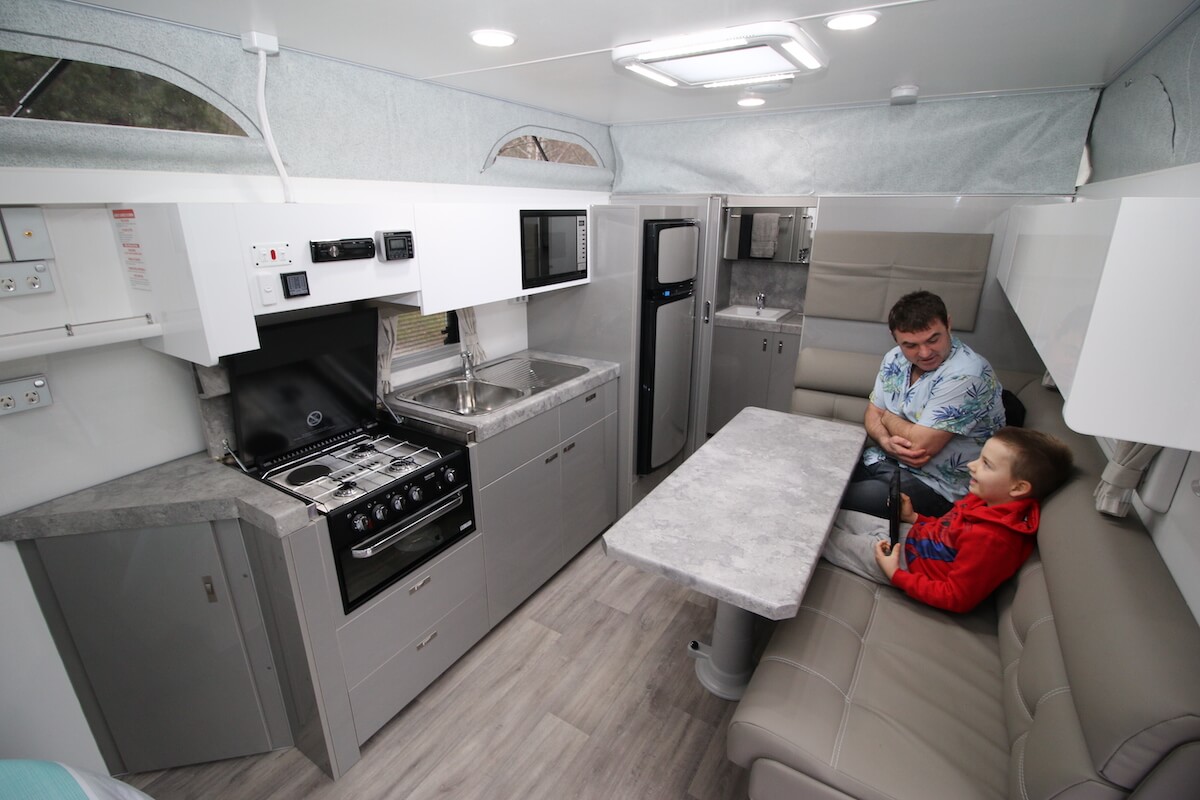
SUMMING UP
I understand that not everyone will agree with my proposition that pop-tops are the better choice. However, if you’re in the market for a new van, I highly recommend that you consider one. Whichever you choose, it’s more important that you enjoy your adventures and I’ll see you out there on the road.
MEET THE AUTHOR

Max Taylor
Max Taylor has been caravanning since he was a kid and was the editor of some of Australia’s most well-known RV publications for almost 10 years.

